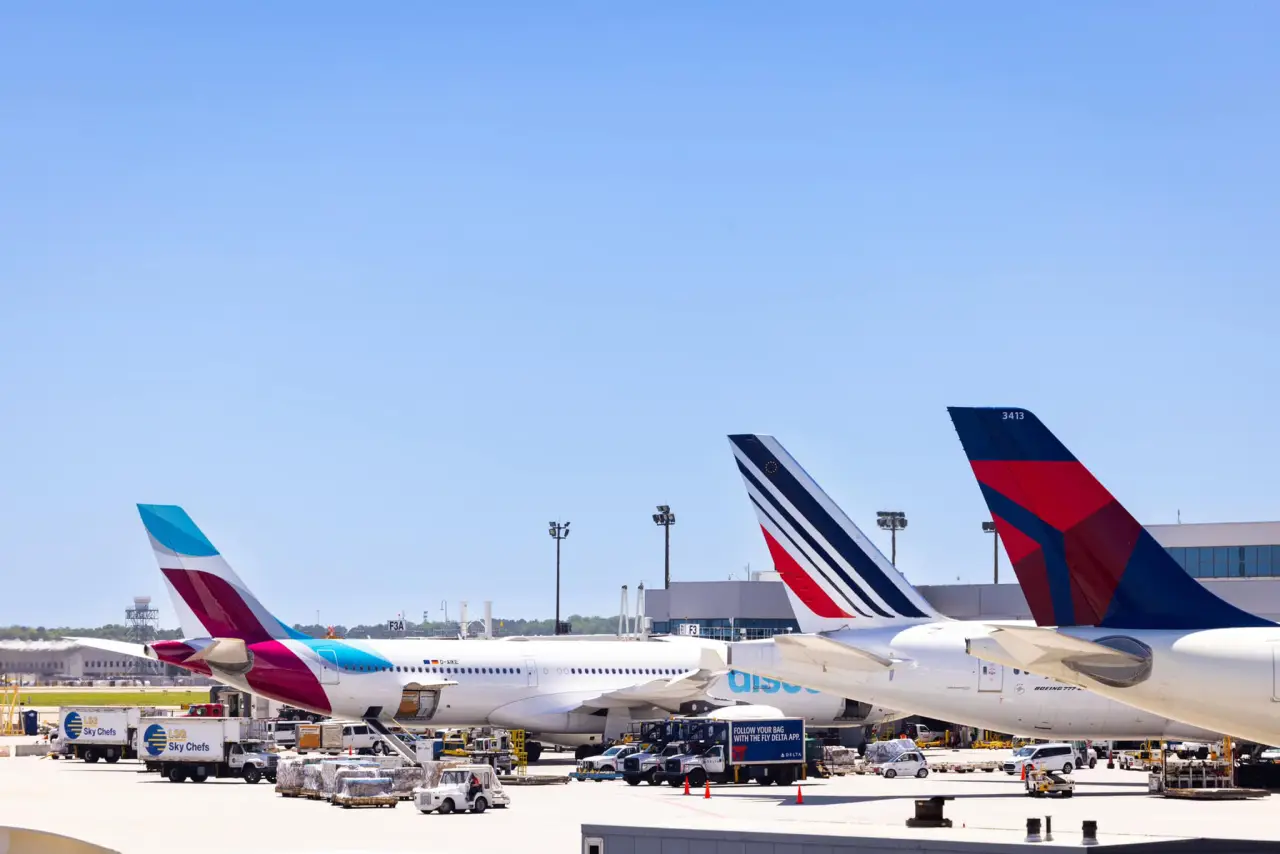


The Airports Council International – North America (ACI-NA) has released its 2023 North American Airport Traffic Summary, detailing the top 10 busiest airports in the United States based on passenger numbers.
The report highlights a strong recovery in air travel as more Americans return to the skies.
1. Hartsfield-Jackson Atlanta International Airport (ATL)
Total Passengers: 104,653,451
% Change from 2022: 11.7%
Hartsfield-Jackson Atlanta International Airport continues to hold its position as the busiest airport in the United States, serving over 104 million passengers in 2023. This major hub, known for its extensive domestic and international connections, saw an 11.7% increase in passenger traffic compared to 2022.
2. Dallas Fort Worth International Airport (DFW)
Total Passengers: 81,755,538
% Change from 2022: 11.4%
Dallas Fort Worth International Airport ranks second, with nearly 82 million passengers passing through its terminals in 2023. DFW’s strategic location as a central hub in the U.S. contributes to its high passenger volume, which grew by 11.4% from the previous year.
3. Denver International Airport (DEN)
Total Passengers: 77,837,917
% Change from 2022: 12.3%
Denver International Airport, known for its unique architecture and extensive domestic network, comes in third with over 77 million passengers. The airport experienced a 12.3% increase in traffic, reflecting its growing importance as a major U.S. airport.
4. Los Angeles International Airport (LAX)
Total Passengers: 75,050,875
% Change from 2022: 13.8%
Los Angeles International Airport remains a key gateway to the Pacific and beyond, ranking fourth with 75 million passengers in 2023. LAX saw a significant 13.8% growth in passenger numbers, driven by both domestic and international travel demand.
5. Chicago O’Hare International Airport (ORD)
Total Passengers: 73,894,226
% Change from 2022: 8.1%
Chicago O’Hare International Airport continues to be one of the busiest airports in the country, serving nearly 74 million passengers in 2023. Despite its growth of 8.1% over 2022, ORD has maintained its critical role as a major hub for both domestic and international flights.
6. John F. Kennedy International Airport (JFK)
Total Passengers: 62,464,331
% Change from 2022: 13.0%
John F. Kennedy International Airport, the primary international gateway in New York, ranks sixth with over 62 million passengers in 2023. The airport experienced a 13% increase in passenger traffic, fueled by the resurgence of international travel.
7. Orlando International Airport (MCO)
Total Passengers: 57,735,726
% Change from 2022: 15.1%
Orlando International Airport has emerged as a top performer in 2023, ranking seventh with more than 57 million passengers. MCO’s remarkable 15.1% growth underscores its increasing popularity as a major travel hub, particularly for leisure travel to Florida.
8. Harry Reid International Airport (LAS)
Total Passengers: 57,666,456
% Change from 2022: 9.4%
Harry Reid International Airport, serving Las Vegas, is eighth on the list with nearly 58 million passengers in 2023. The airport’s 9.4% growth reflects Las Vegas’s continued appeal as a leading destination for both tourism and business travel.
9. Charlotte Douglas International Airport (CLT)
Total Passengers: 53,445,770
% Change from 2022: 11.9%
Charlotte Douglas International Airport ranks ninth with over 53 million passengers. The airport saw an 11.9% increase in traffic, highlighting its importance as a key hub in the southeastern United States.
10. Miami International Airport (MIA)
Total Passengers: 52,340,934
% Change from 2022: 3.3%
Miami International Airport rounds out the top ten, serving over 52 million passengers in 2023. While MIA had the smallest percentage increase of 3.3%, it remains a crucial gateway for international travel, particularly to and from Latin America and the Caribbean.
North American airports witnessed an increase of passenger traffic whereas cargo traffic decreased in 2023 when compared to 2022. Overall passenger traffic increased by 11.9%, international passenger traffic saw an increase of 27.9%.
Additionally, domestic passenger traffic showed continued recovery with a growth of 9.5%. Overall air cargo traffic decreased by 7.4% as a result of a decrease in international freight of 6.3% and a decrease in domestic freight of 6.5%.